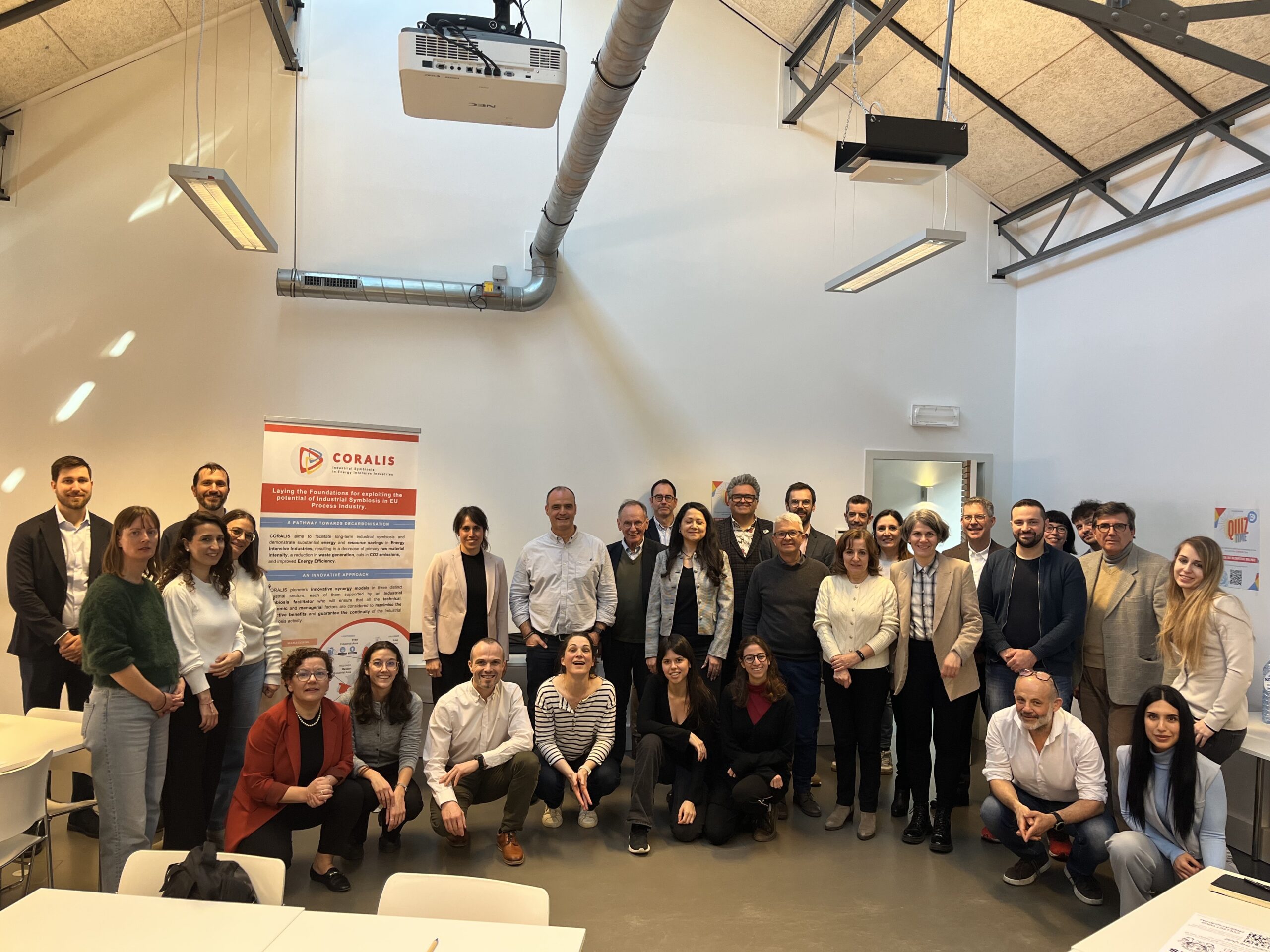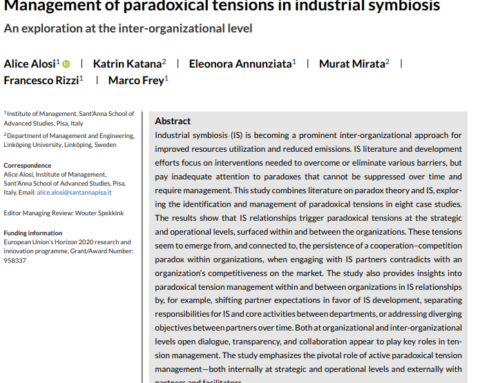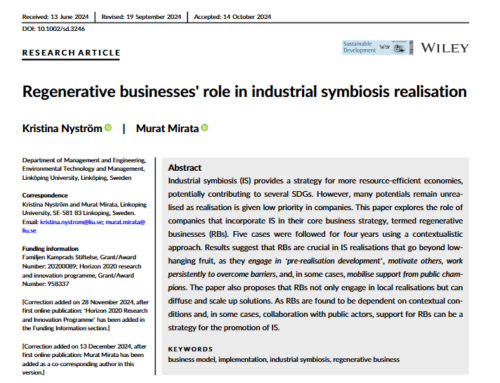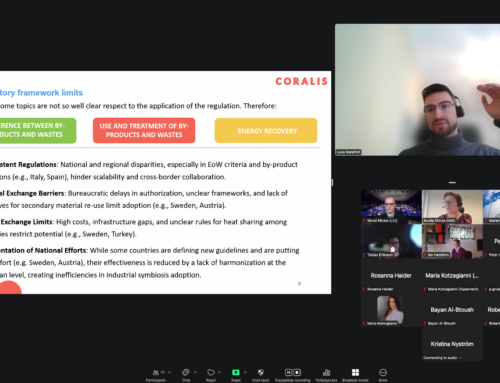On Thursday 24th October 2024, EEIP organized a thematic workshop at the 2nd European Process Industry Conference, hosted by A.SPIRE in Brussels. The workshop, titled “Industrial Symbiosis: A Key to Enabling Energy Efficiency Markets”, brought together experts from various projects and organizations to discuss how industrial symbiosis can drive energy efficiency and contribute to broader sustainability goals. The session was structured as a panel discussion, featuring representatives from CINEA, CORALIS, IS2H4C, and REDOL projects, all of whom contributed to setting the scene for the project presentations and the following roundtable discussion. The event opened with remarks by EEIP’s Business Director, Jürgen Ritzek.
Oronzo Daloiso, Topic Leader for Business and Industry Projects at CINEA presented on the political context surrounding the European Green Deal, focusing on how the European Green Deal aims to boost resource efficiency and drive the transition towards a circular economy. He highlighted how the “Fit for 55” legislative package and REPowerEU are instrumental in achieving the 2030 EU targets, and how these frameworks support industrial symbiosis as part of the EU’s climate and energy goals.
Rachel Lombardi, CEO of International Synergies Ltd, complemented Oronzo’s presentation by setting the scene for the upcoming project presentations and the roundtable discussion from a collaboration perspective. She emphasized the importance of cross-sector partnerships to achieve industrial symbiosis and highlighted the need for integrated approaches to address both environmental and economic challenges. Her speech provided the broader context that linked policy frameworks to practical initiatives, creating a foundation for the project presentations that followed.
Daphne Mirabile, Senior Researcher at RINA, representing the CORALIS project, discussed the project’s efforts to decarbonize resource-intensive sectors through viable industrial symbiosis approaches. She described how CORALIS combines innovative technology enablers with new business and management strategies to create pathways for decarbonization, with demonstration cases across different industrial areas. These efforts aim to showcase the potential of industrial symbiosis in improving resource efficiency within energy-intensive sectors.
Devrim Yazan, Associate Professor at the University of Twente and Project Coordinator of IS2H4C, introduced in a nutshell the complex project that aims to deliver 17 symbiotic synergies, within the project’s 4 hubs. He elaborated on the technologies being deployed, including green hydrogen production, carbon capture, e-fuels, and waste heat recovery. Yazan also highlighted the project’s role in fostering systemic industrial change by integrating surrounding ecosystems into industrial areas.
Paola Mazzucchelli, Brussels Delegate for CIRCE, representing the REDOL project, outlined the objectives of Aragon’s Regional Hub for Circularity, which aims to demonstrate local industrial-urban symbiosis initiatives. She emphasized the importance of addressing non-technical barriers, such as regulatory issues and stakeholder collaboration, to effectively valorize solid urban waste as industrial feedstock. Mazzucchelli also discussed the role of digital tools and methodologies in identifying new collaboration opportunities among consortium partners, thereby strengthening value chain integration.
The roundtable discussion covered obstacles and opportunities for advancing industrial symbiosis. Panelists highlighted the challenges of managing technologies at varying TRLs and integrating outputs from different levels. A major barrier identified was the lack of effective information sharing among partners, which hinders technology implementation and project continuity. The issue of replicating technologies after project completion was also discussed, noting that many ready-to-use innovations are left without further adoption due to a lack of a clear business case and supporting actor. Additionally, the reluctance of partners to take risks due to concerns about supply continuity and cost-sharing was addressed, with Rachel Lombardi pointing out that these challenges are common across different business contexts, not unique to industrial symbiosis, and called for stronger industry-public administration collaboration.
The workshop concluded with a strong focus on the importance of funding to advance industrial symbiosis and circularity initiatives. The event served as a platform to showcase the interplay between funding and technological advancement, fostering dialogue among stakeholders to drive sustainable industrial practices forward.







